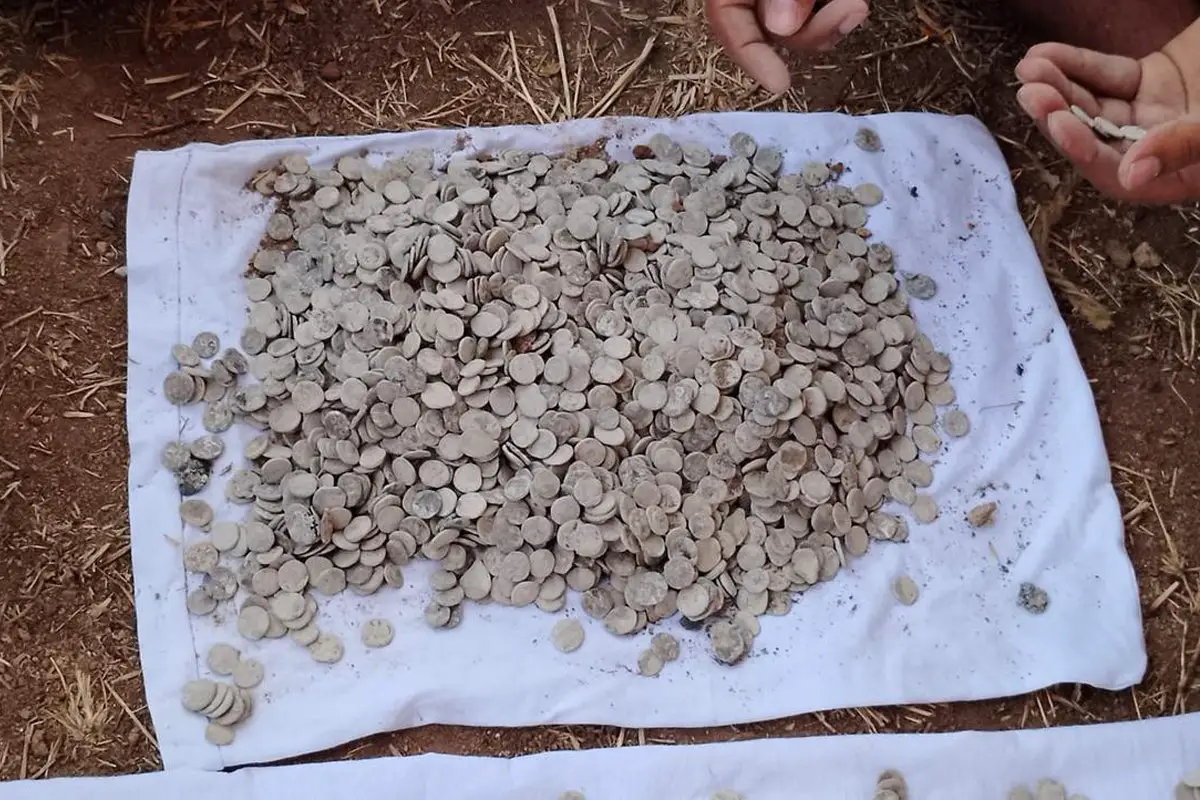Archaeologists from the Department of Archaeology have discovered an earthen pot containing a hoard of 3,730 lead coins at the Buddhist site of Phanigiri, located in Suryapet district, India.
The deposit dates from the Ikshvaku dynasty, also known as the Solar dynasty or Sūryavaṃśa, one of the two major Kshatriya dynasties in Hindu Puranic and epic literature.
The dynasty ruled the Andhra region, Krishna River Delta, and Godavari river on the east coast, with their power base centred on their capital of Dharanikota (present day Amaravati).
Excavations at Phanigiri, a Buddhist complex dedicated to Gautama Buddha, recently uncovered an earthen pot containing 3,730 lead coins with a depiction of the elephant symbol on one side and the Ujjain symbol on the reverse.
The Ujjain symbol consists of a cross connecting four circles/orbs, and was used on coinage by various ancient dynasties and kingdoms of India.
The symbolism of the Ujjain is open to speculation, with some scholars suggesting that it represents the junction of four roads, or that it might represent the Damaru’ of Lord Shiva, or the four temples of Lord Shiva with the temple of Lord Mahakaal in the centre.
According to the Department of Archaeology, the coins date from between the 3rd and 4th century during the Ikshvaku dynasty period.
Alongside the coins, the team also uncovered stone and glass beads, stucco motifs, limestone sculptures, shell bangle fragments, a wheel from a child’s toy cart, and various ceramics.
Header Image Credit : Department of Archaeology
Sources : Department of Archaeology | The Hindu





